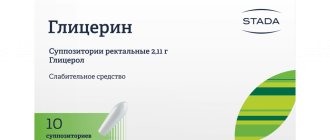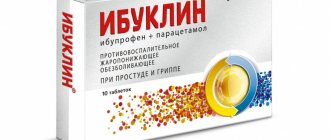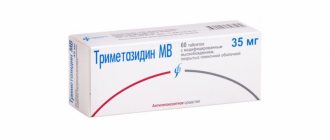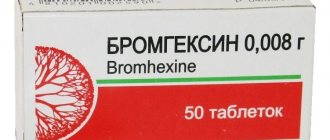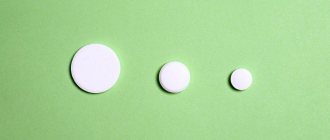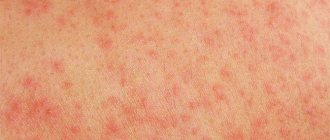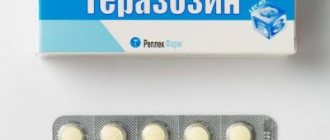Allergy pills are designed to eliminate specific negative symptoms resulting from a reaction to a specific allergen. Many substances can act as irritants:
- plant pollen;
- food products;
- cosmetical tools;
- household chemicals;
- dust;
- pet hair;
- etc.
Allergy medications significantly alleviate the condition of people diagnosed with this pathology, improving their quality of life and allowing them to remain productive.
The principle of action of allergy remedies
The modern pharmacy market is represented by high-quality allergy medications (antihistamines, antihistamines).
There are 3 generations of allergy medications. What are the fundamental differences?
Some of the drugs are classified as homeopathic and hormone-containing drugs. The selection of medications is carried out by an allergist after collecting an anamnesis, external examination of the patient and conducting laboratory diagnostic tests (including allergy tests).
The mechanism of action of antihistamines is to block histamine receptors, which leads to the elimination of negative symptoms.
Reference.
Allergy in medicine is usually called the response of the human immune system to any irritating factor (allergen). Contact with an irritant and/or with many irritants leads to the active state of a biologically active component - histamine (an allergy mediator found in most tissues of the body). This biologically active substance is not dangerous to the body if its activity is not observed. In its active state, histamine leads to disruption of the functions of organs and systems - nervous, muscular, respiratory, digestive, etc.
As a result, the following symptoms may occur:
- Watery eyes, copious discharge from the sinuses.
- Impaired nasal breathing.
- Sneezing, coughing.
- Bronchospasm/breathing disorder.
- Activation of the process of secretion of gastric juice.
- Disturbance of the digestion process and stool (diarrhea).
- Dilatation of blood vessels.
- Edema.
- Skin rashes.
- Headaches, dizziness, fainting.
- Muscle spasms.
- Blood pressure surges.
- Arrhythmia.
- Dry mouth, voice changes.
- Chest/heart pain and more.
Attention!
The condition requires taking special antihistamines that eliminate the negative manifestations of the disease. Experts recommend using modern high-quality medicines to treat allergies of various origins and not experimenting with traditional recipes.
First generation drugs
1st generation antihistamines are able to penetrate the nervous system. This helps to quickly eliminate allergy symptoms. However, their effect does not last long, and with long-term use of drugs of this group, addiction may occur. The most common side effects of 1st generation antihistamines are drowsiness, weakness, headache, dizziness and slow reactions. Despite significant disadvantages, these drugs are low in cost and, unlike modern drugs, are available in both tablet and injection form, which allows them to be used for emergency care. Not intended for long-term treatment. In this group there are 4 most effective drugs: diphenhydramine, diazolin, suprastin and tavegil.
- Diphenhydramine. One of the very first antihistamines. Dispensed strictly according to prescription. Used in emergency situations. Not suitable for children.
- Diazolin. Does not cause significant drowsiness. Can be used for prevention purposes. Suitable for use by both children and adults. Longer lasting effect. Ineffective for severe allergic reactions.
- Suprastin. Does not cause significant drowsiness. A rapid therapeutic effect and, compared to other drugs in this group, there are fewer side effects. Has a wider range of indications. Can be used by both adults and children. Not recommended for use in bronchial asthma.
- Tavegil. Used as a treatment for both allergic and pseudoallergic reactions. Does not cause significant drowsiness. Effectively relieves allergy symptoms, especially during the flowering period. Effective for 8 hours (the longest effect from the group of first-generation drugs).
What is the best allergy medicine?
In medicine there is no concept of “best” and “worst”. The drugs of each group have their own advantages, disadvantages and characteristic features. When prescribing them, many factors are taken into account, including the patient’s age, the presence or absence of concomitant diseases, as well as the degree and type of allergy. What suits one person may not only be of no benefit to another, but even harmful.
Important!
Allergic diseases can always be treated with medications. This can be taking tablets individually (monotherapy) or complex treatment. In this case, the allergy drug is part of a complex treatment that includes drugs belonging to other groups.
Suprastin: what helps
Suprastin is a drug that has long been a part of the lives of allergy sufferers and copes well with its functions, including:
- stopping allergic rhinitis;
- getting rid of hives;
- relief of skin itching;
- reducing the severity of the reaction to an insect bite.
An undeniable advantage of Suprastin is its safety in relation to pregnant women. Therefore, it is often prescribed to expectant mothers for seasonal rhinitis. One contraindication should be noted separately: Suprastin should not be taken by patients with glaucoma.
For laryngitis. bronchitis and tracheitis, the prescription of Suprastin must be accompanied by a mandatory condition - the patient must drink plenty of fluids daily. This is due to the fact that a side effect of the drug is drying out of the mucous membranes. Healthy people can easily put up with this, but patients with laryngitis or bronchitis must independently maintain the rheological properties of the sputum discharge so as not to get a complication in the form of pneumonia.
Complications of allergies in children
In the absence of competent measures, diseases and conditions that are difficult to treat may develop. Many of them significantly worsen the child’s health, reduce his quality of life and often lead to disability, these are:
- Chronic rhinitis.
- Persistent headaches.
- Deterioration of memory and concentration.
- Autoimmune disorders.
- Bronchial asthma, anaphylactic shock or asphyxia.
Allergies in children of any age require timely contact with a qualified specialist and constant monitoring. Only an experienced pediatric allergist can prescribe adequate treatment and provide competent medical supervision.
Causes of allergies
The cause of an allergy is an allergen. Science and medicine figured this out a long time ago. As for the reasons for increased sensitivity to a particular substance, there are many mysteries. For an unknown reason, excessive activation of immune cells (mast cells and basophils) occurs in response to the appearance of an allergen in the body. An inflammatory process is initiated, which can be mild (runny nose, lacrimation, itching) or life-threatening (anaphylactic shock, Quincke's edema).
In developed countries, a constant increase in the number of allergy sufferers is recorded. The exact reason for this phenomenon has not yet been established. Today, the dominant theory in this sense is the hygienic theory¹. It was put forward by David Strachan in 1989. According to this hypothesis, excessive hygiene leads to an undertaxed immune system. As a result, the immune system begins to react to harmless antigens such as plant pollen or animal fur.
Remedies for allergies during pregnancy
Negative signs of allergies are not just the appearance of unpleasant symptoms, but a high probability of developing autoimmune disorders. This factor should be taken into account by women carrying a child. Therefore, if characteristic symptoms of the disease appear, you should consult a doctor and start taking the medications prescribed by the specialist.
Important!
It is prohibited to buy or take any
allergy medications
without consulting a doctor and undergoing examinations. Self-medication is not acceptable! This is especially true for pregnant women. It should also be taken into account that many drugs are prohibited during pregnancy.
Properly selected, high-quality, modern medicines cannot cause serious harm to the mother’s body and do not affect the development of the fetus. Such drugs, if necessary, are also prescribed to breastfeeding women.
Why are antihistamines needed?
The occurrence of allergies is caused by a violent reaction of the body to contact with certain substances called allergens. The impact of allergens on certain cells of the body provokes the active production of histamine. Histamine is a substance found inside mast cells. In a healthy person, histamine remains inside the cells and is not released. But when it comes to allergies, histamine is actively released, forming allergic inflammation.
Histamine release can manifest itself in different ways:
- swelling of soft tissues;
- cough;
- runny nose;
- lacrimation;
- decreased blood pressure;
- the appearance of a rash;
- bronchospasm.
Antihistamines were created not only to regulate the production of histamine by mast cells, but also to neutralize the volumes of the substance that have already been produced and create inflammation.
How to choose allergy medications?
Now there are a lot of different antihistamines. We offer both expensive original medicines and their more affordable popular analogues. When purchasing, you should follow the recommendations of your doctor and do not replace your own prescribed medication with a similar drug.
Selecting a medicine for allergies is the prerogative of an allergist. A specialist is able to accurately identify the allergen, identify the type and degree of the disease, and, based on all the data, select the best option for successfully blocking histamine receptors.
The main rule to follow
- this is an appeal to a trusted drug supplier. Only in this case can you avoid counterfeiting and not overpay for goods of dubious origin. The network of social pharmacies Stolichki guarantees the authenticity of medicines and offers a wide range of medicines at affordable prices.
Tavegil: who is it suitable for?
Tavegil belongs to the class of modern antiallergic drugs. It gives the first therapeutic effect within a short time after entering the gastrointestinal tract. Indications for the use of Tavegil may include:
- hay fever;
- eczema;
- itchy dermatitis, including urticaria;
- iridocyclitis;
- rhinitis of allergic etiology.
However, this drug should not be used with the following contraindications:
- asthma;
- any pathologies of the lungs and bronchioles;
- pyloric stenosis;
- glaucoma;
- thyrotoxicosis;
- hypertension;
- prostatic hyperplasia.
The use of Tavegil is also contraindicated for children under 6 years of age and pregnant women.
Review of new generation products
Modern allergy remedies contain mainly one of the active chemicals:
- cetirizine (present in Zirtec and Zodak tablets and drops, in Cetrin, Cetirizine tablets and drops);
- levocetirizine (in Suprastinex tablets, Zodak Express tablets, Xyzal drops and tablets, Levocetirizine-Teva tablets, Glencet tablets, syrup and Erius tablets);
- desloratadine (contained in Dezal tablets and solution, Lordestin and Desloratadine tablets, Blogir-Z syrup and tablets);
- fexofenadine (the main active ingredient in Fexofast, Allegra tablets, Fexadin, Gifast tablets).
Cetrin can be purchased in the form of tablets or syrup. The tablet form is contraindicated for children of preschool age; syrup can be used for children from two years of age. Indicated to relieve spasms in bronchial asthma and reduce swelling. Maintains the effect throughout the day.
Contraindicated in case of hypersensitivity to the composition, during pregnancy and lactation. Prescribe with caution to the elderly and persons with chronic renal failure.
Zodak effectively eliminates redness, itching and swelling. Allergy drops can be used in children from 6 months of age. Contraindicated in case of high sensitivity to the components, during pregnancy, in case of severe kidney pathologies.
Erius has an instant effect, long-lasting effect, relieves itching and swelling. At the same time, it does not have a negative effect on the heart, kidneys and central nervous system. Indicated for allergic rhinitis, reactions to foods and medications, and skin manifestations. Tablets can be used in children from 12 years of age, syrup - from one year. Renal failure is a reason to be treated with Erius with caution.
Fexadin eliminates the manifestations of seasonal allergic rhinitis and chronic urticaria. Contraindicated during pregnancy and lactation, not for use in children under 6 years of age or in case of hypersensitivity to fexofenadine.
Desloratadine is indicated for allergic rhinitis that occurs seasonally or year-round, and for urticaria. Relieves congestion and itching in the nose, palate, eyes, redness and watery eyes. In case of hypersensitivity to the components, during pregnancy and lactation it is not prescribed. Not used in children under 12 years of age.
Sprays and drops
Since the treatment must be comprehensive, a nasal spray acts as an additional antiallergic agent. After reading customer reviews, we have compiled a rating of the TOP 3 remedies against allergic rhinitis.
| Name | Type of drug | pros |
| Tizin Alerji | Vasoconstrictor | Fast action, long lasting results, no side effects. A small single dose is required, so the drug is economical. Approved for use by children and pregnant women. |
| Avamis (adults only) | Hormone | Reduces the inflammatory effect, lasts for at least eight hours. |
| Allergodil | Antihistamine | Does not contain hormonal substances. The drug can be used as a prophylaxis. |
To eliminate itching and watery eyes, as well as conjunctivitis, special drops are prescribed. Let's look at the best products, according to buyers.
| Name | Type of drug | pros |
| Visine | Vasoconstrictor | Quickly relieves swelling and inflammation, allowed for children from two years of age. |
| Allomide | Antihistamine | Blocks the first type of receptors. The drug is used in the treatment of conjunctivitis, as well as as a prophylaxis. |
| Diclofenac | Non-steroidal | The drug relieves inflammation and has an analgesic effect. Eliminates lacrimation. |
Kinds
Depending on the factor that activates the body's defense reaction, allergies are classified into three types. Please note that any treatment begins with reducing contact with the allergen, and the action of the drugs is mainly aimed at eliminating symptoms.
| View | Negative reaction to | Diagnostics |
| Food | Certain foods. | Provocative tests (injection of a concentrated allergen into the blood), skin tests. |
| Respiratory | Some smells, dust or blooms. | Familiarization with family history, observation. |
| Medicinal | Medications or long-term use. | People who regularly take hormonal and antibacterial drugs are at risk. Injecting a small dose of the drug into the blood. |
It is important to find out the cause of allergies at the initial stage, since at an advanced stage secondary diseases will begin to develop (bronchial asthma, eczema, sinusitis, etc.).
Sources
1. Scudellari M. (2017).
News Feature: Cleaning up the hygiene hypothesis. Proceedings of the National Academy of Sciences of the United States of America, 114(7), 1433–1436. https://doi.org/10.1073/pnas.1700688114 2. State register of medicines. Instructions for use of the drug for medical use CHLOROPYRAMINE https://grls.rosminzdrav.ru/ImgInstr.aspx?folder=ScanVavilova&Filepath=\Vneseno_v_Grls\454954\IP&idReg=160167&isOld=1&fileType=jpg&pfolder=2
3. Tenn MW, Steacy LM, Ng CC, Ellis AK. Onset of action for loratadine tablets for the symptomatic control of seasonal allergic rhinitis in adults challenged with ragweed pollen in the Environmental Exposure Unit: a post hoc analysis of total symptom score. Allergy Asthma Clin Immunol. 2018;14:5. Published 2021 Jan 16. doi:10.1186/s13223-017-0227-4
4. Axelrod, David, and Leonard Bielory. “Fexofenadine hydrochloride in the treatment of allergic disease: a review.” Journal of asthma and allergy vol. 1 19-29. 19 Sep. 2008, doi:10.2147/jaa.s3092
